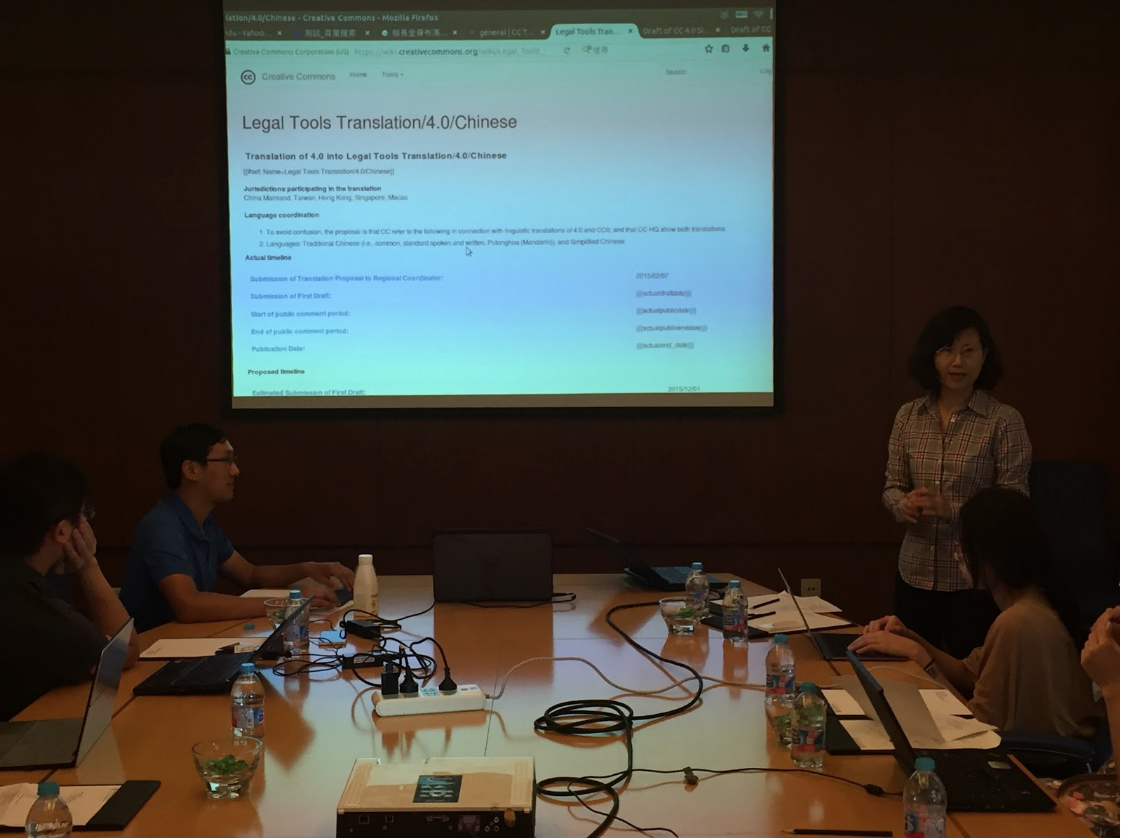Help us protect the commons. Make a tax deductible gift to fund our work. Donate today!
We are pleased to announce publication of the official translation of the Creative Commons CC0 public domain dedication into Traditional Chinese and Simplified Chinese. Nearly 1.2 billion people (around 16% of the world’s population) speak some form of Chinese as their first language, so the availability of CC0 in Simplified and Traditional Chinese will bring huge potential benefits.
Representatives from CC China Mainland, CC Hong Kong, and CC Taiwan gathered during the CC Global Summit in Seoul in Oct 2015 and decided to initiate their collaborative effort to translate both 4.0 and CC0 into Simplified Chinese and Traditional Chinese. This accomplishment wouldn’t have been possible without the hard work and dedication among the teams working on the translations, involving lots of email exchanges, many rounds of conference calls, and two face-to-face meetings made possible by grants from Ford’s International Institute of Education. The group also invited feedback and contribution from other teams such as CC Singapore and CC Macau, which support populations who speak Chinese languages in their local communities.
On December 5, 2015, the first face-to-face meeting was held at the University of Hong Kong, with the generous support of CC Hong Kong, including Ying Chan and Ben Cheng (CC Hong Kong Public Leads), Haggen So and Benjamin Zhou. Attended by Chunyan Wang from CC China Mainland and Yihsuan Lin from CC Taiwan, who had been playing a critical role in the translation efforts in their respective team, the meeting was an important milestone in the collaborative translation project which led to drafts of the two different Chinese versions of the CC0 public domain dedication, Simplified Chinese and Traditional Chinese.
The second translation meeting was held July 2-3, 2016, in Beijing, in conjunction with the CC Asia Pacific Regional Meeting hosted by CC China Mainland and attended by 19 representatives from 10 CC affiliates in the region. During this intense workshop session, the group collaborated on the final cross-checking of the draft translations created by the translation teams from CC China Mainland and CC Taiwan.
The group received feedback on their first drafts through a public consultation in July 2016, after their second face-to-face meeting in Beijing. CC China Mainland and CC Taiwan announced the two drafts and received feedback from their local communities through their mailing lists, websites, and social media. Face-to-face meeting is still critical to the success of this kind of collaborative volunteer effort, especially among members with their own unique challenges regardless of their geographical proximity. Creative Commons thanks the Ford Foundation for its generous support to make the two meetings happen.
We are deeply appreciative for the hard work of and thorough feedback from all who contributed to the success of this project, and special thanks to Ben Cheng, Tyng-Ruey Chuang (CC Taiwan Project Lead), Cheng-Jen Lee, Lucien Lin, Yihsuan Lin, Haggen So, Beibei Sun, Ally Wang, Chunyan Wang (CC China Mainland Project Lead), Xingzhi Xin, and Yi Zheng for their outstanding contribution, dedication and commitment. Personally, I am truly honored to work with all who shared their skills, wisdom and insight with patience and care throughout the process, particularly Diane Peters (Creative Commons General Counsel). Congratulations to all!
For details on this project, please visit this wiki page.

Wenkai Sun, licensed under CC BY 4.0